The NSW Government has committed $59 million to the Landcare Enabling Program over the next 4 years (2023- 2027). Landcare NSW in partnership with Local Land Services will deliver the Program as a continuation of their long-standing successful partnership.
The commitment to the NSW Landcare Enabling Program 2023-2027, will employ up to 83 full-time equivalent local and regional Landcare coordinators and support staff across NSW. This commitment builds on the success of the NSW Landcare Program, a $22.4m commitment 2019-2023, which supported the employment of 84 part time local and regional Landcare Coordinators in NSW.
Landcare NSW and Local Land Services (LLS) are currently planning the next phase of the NSW Landcare Program. The Joint Management Committee (JMC) which is made up of representatives from both Landcare NSW and LLS engaged Nation Partners to help facilitate and design the implementation plan for the new program.
A working group comprising of LLS and Landcare NSW volunteers was established to support this process co-chaired by Gary Rodda (LLS) and Turlough Guerin (LNSW) and ensured feedback from recent focus groups, the Landcare State Gathering and evaluation reports were taken into consideration.
A key focus is ensuring a fair and equitable process for potential Landcare group applicants.
Coordinator Grants Package
The critical components of the program are the employment of Local and Regional Coordinators.
The Department of Regional NSW (DRNSW) and LLS are developing the grants package. Landcare NSW, specifically the Program Manager, provided input into the design and planning of the program.
The intention is to have the new program grants package available in September, with the view to advise successful applicants in October 2023. Typically, open/close periods for a grant is four weeks.
Details such as part time versus full time coordinator positions, the types of roles that will be supported, salaries and host organisation eligibility will be clearly defined in the guidelines when they become available. Due to probity reasons, we cannot provide any specifics until the guidelines are released.
Once the Minister releases the grant guidelines for the Coordinator component and the application period is open, the NSW Landcare Program plans to hold two online webinars to respond to any questions regarding the application. These sessions will be recorded and made available.
We have developed an Frequently Asked Questions (FAQ) document to answer some of the questions we have been receiving as best we can at this stage. We also encourage those Landcare groups and regions with an interest in hosting a coordinator to get in touch with their regional Landcare body: Regional & Local Landcare Coordinators — NSW Landcare Gateway
Enabling Components – Shared Services Hub and Digital Landcare
Landcare NSW has begun working on two new components of the Program as a matter of priority to ensure support for host organisations and coordinators.
The new Program has a Shared Services Hub component which will provide a suite of essential support services for Landcare groups to opt in to. The Hub aims to streamline access to centralised support services such as human resources, incuding induction packages for new coordinators as a priority.
Another new component is the Digital Landcare component focused on digitising knowledge to increase efficiencies, access and reach to support hosts and coordinators with readily accessible information. This is being looked at as a priority and Landcare NSW has begun a Digital Projects’ Scoping phase.
This will include a thorough review process of all the current digital assets of Landcare NSW and provide a Road Map, detailed plan, recommendations for requirements for the build and implementation phase of the Landcare NSW Digitalisation Project. Given the time it will take to design and implement a solution, it will likely take a minimum of 6-12 months before any new systems could be in place with user testing and training.
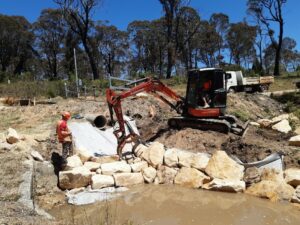
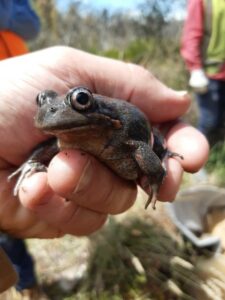
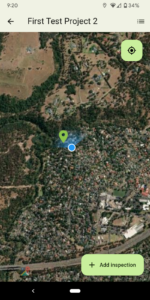
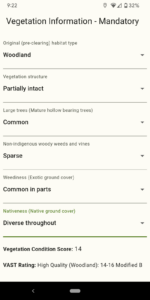
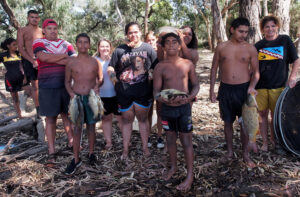
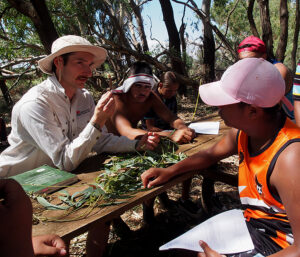
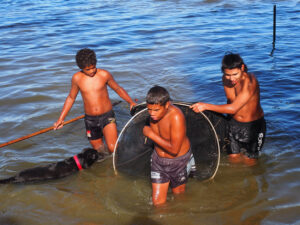
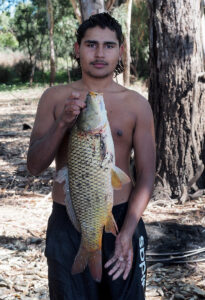
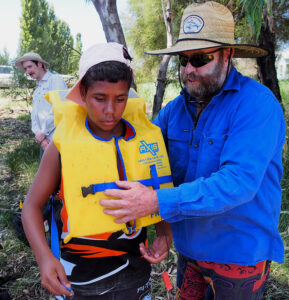
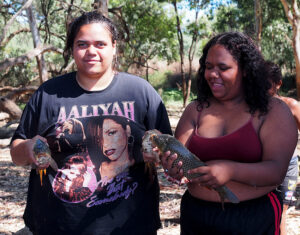
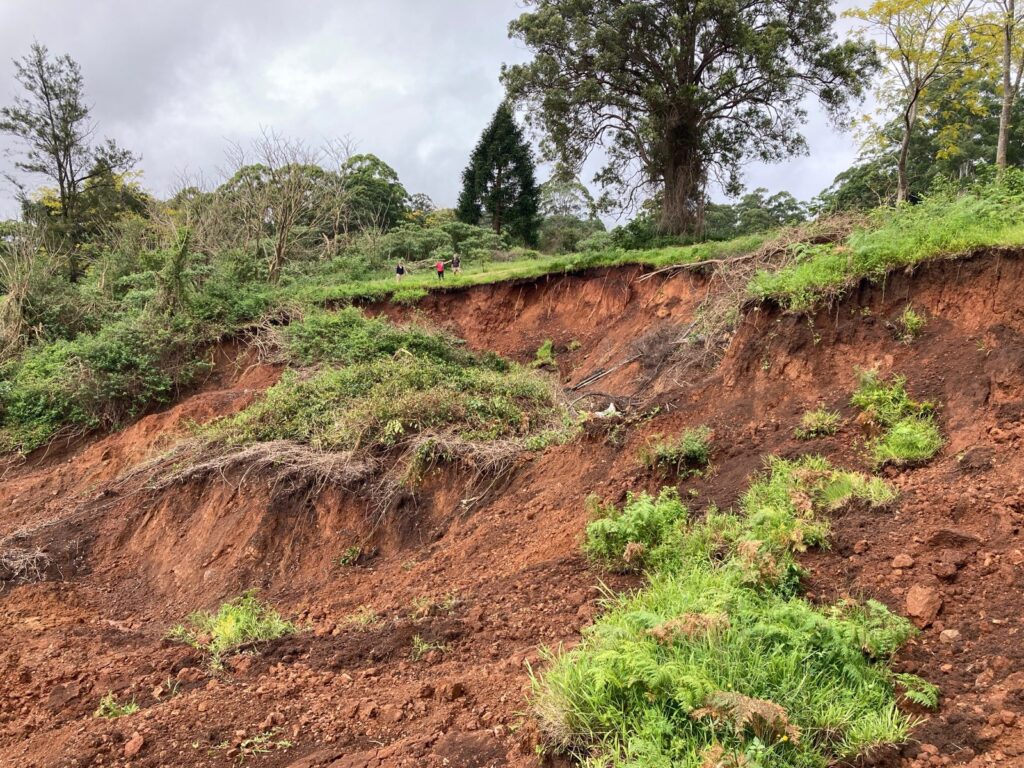 When the extreme rainfall events on the Northern Rivers in February and March 2022 hit it resulted in widespread landslides and devastating impacts across the Northern Rivers. Numerous landholders had internal roads cut off, fences wiped out, paddocks disfigured, hillsides slumped, and forested areas collapsed. This was beyond the scale experienced within living memory leaving affected people completely shocked and perplexed as to what could be done to address the damage.
When the extreme rainfall events on the Northern Rivers in February and March 2022 hit it resulted in widespread landslides and devastating impacts across the Northern Rivers. Numerous landholders had internal roads cut off, fences wiped out, paddocks disfigured, hillsides slumped, and forested areas collapsed. This was beyond the scale experienced within living memory leaving affected people completely shocked and perplexed as to what could be done to address the damage.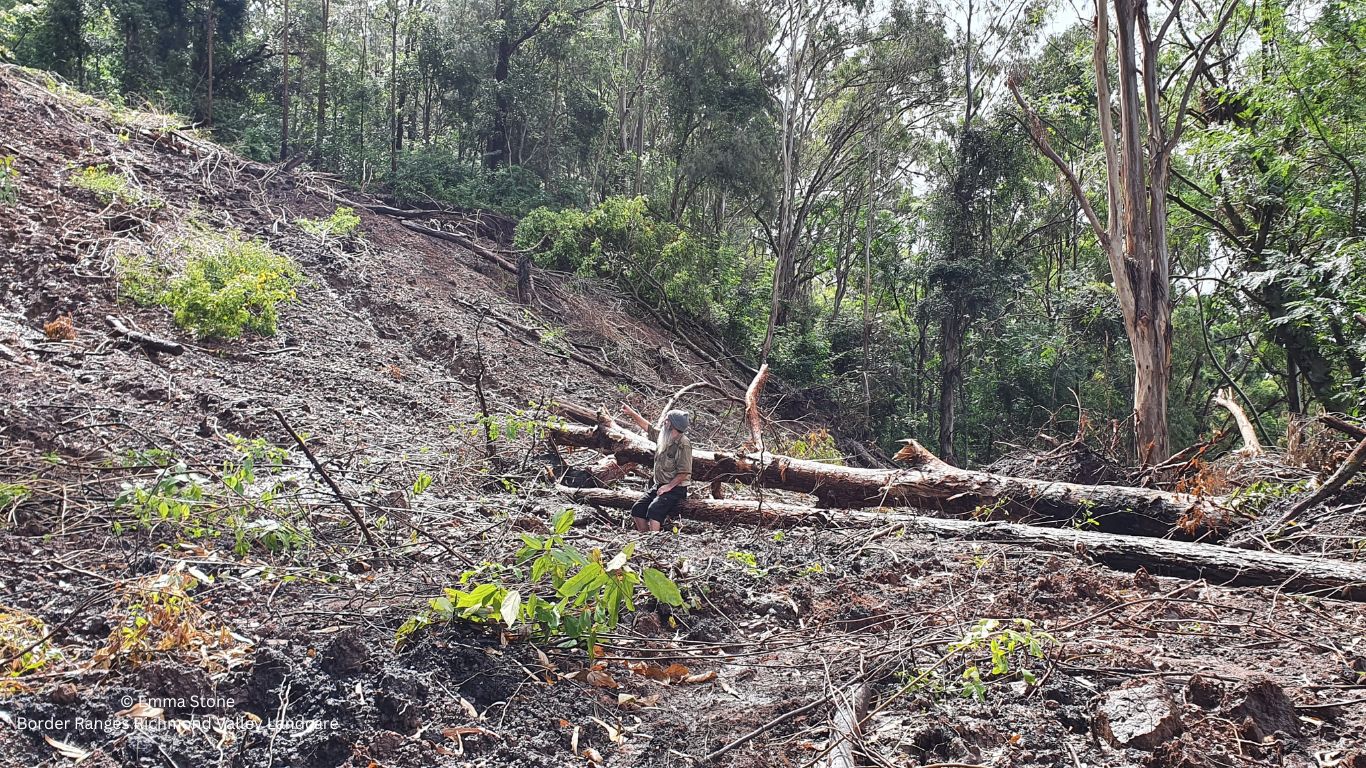
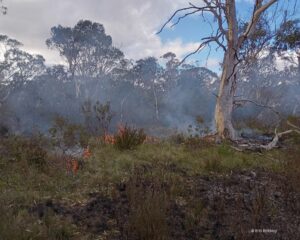
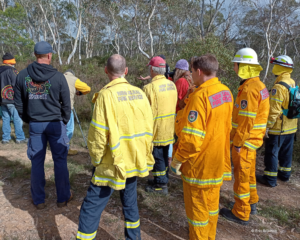 By bringing together local RFS brigades, botanists, landholders, Landcare and Aboriginal groups, Upper Shoalhaven facilitated vital knowledge sharing and demonstrated how good fire practices can be used as a tool to reduce fuel loads and help mitigate the impacts of our changing climate. The workshops proved burning can be conducted in a peaceful and relaxed atmosphere and improved community confidence in using fire as a tool, at the right time, to manage the land and reduce bushfire risk more broadly.
By bringing together local RFS brigades, botanists, landholders, Landcare and Aboriginal groups, Upper Shoalhaven facilitated vital knowledge sharing and demonstrated how good fire practices can be used as a tool to reduce fuel loads and help mitigate the impacts of our changing climate. The workshops proved burning can be conducted in a peaceful and relaxed atmosphere and improved community confidence in using fire as a tool, at the right time, to manage the land and reduce bushfire risk more broadly.